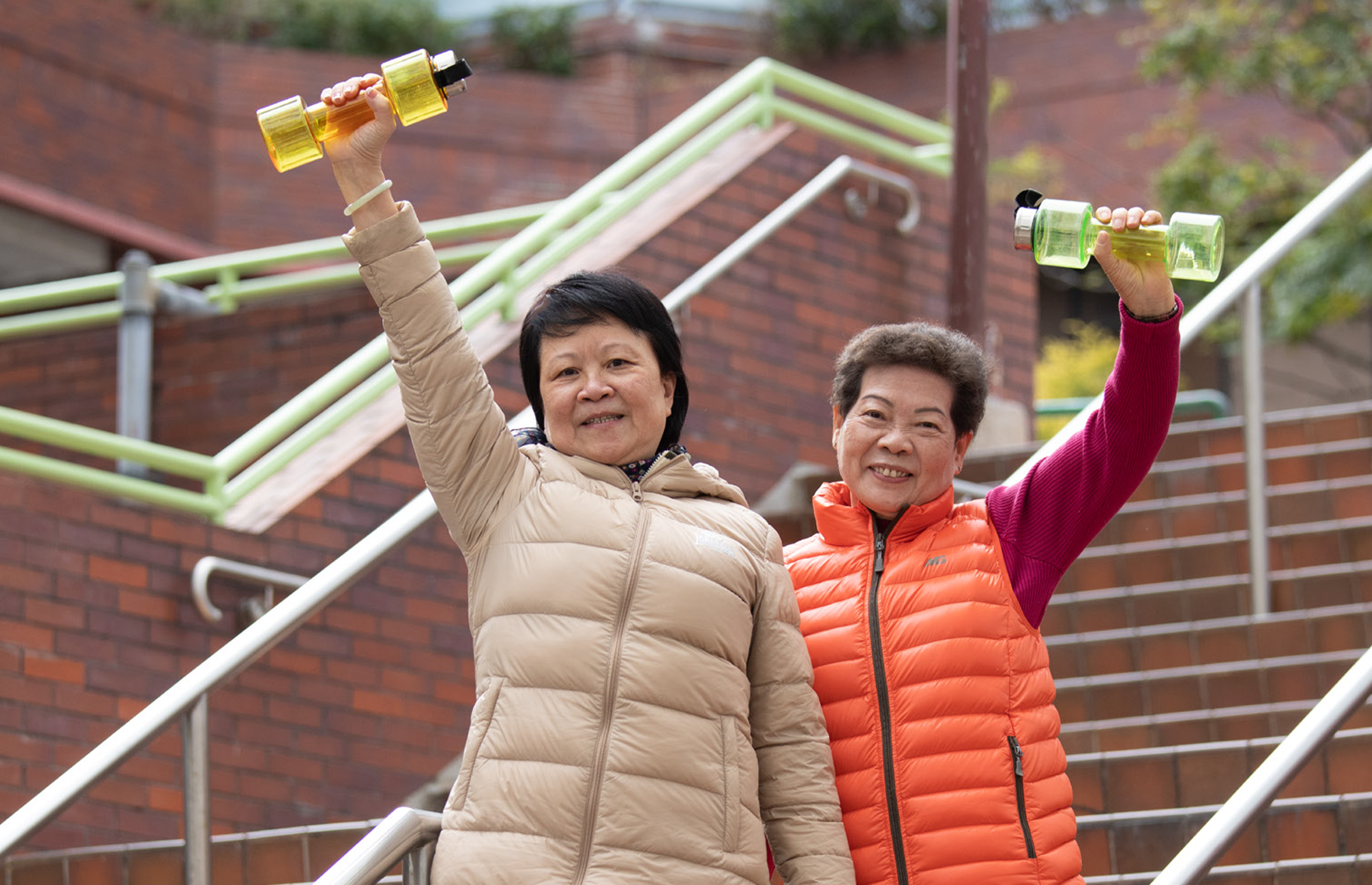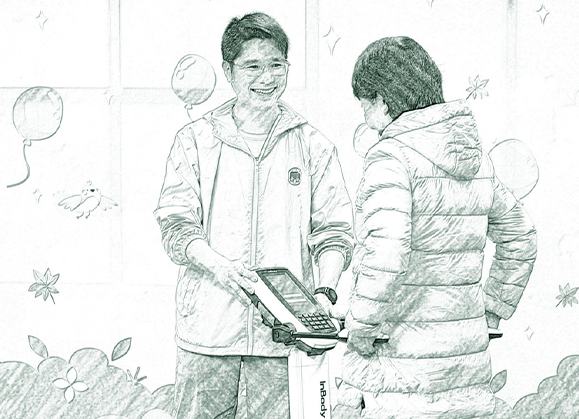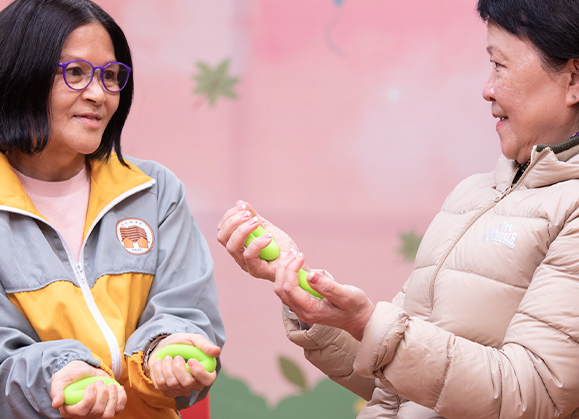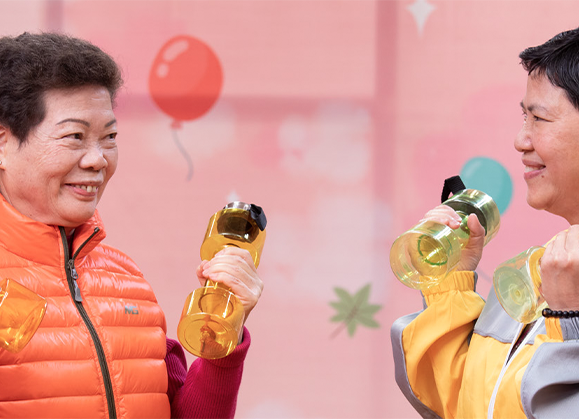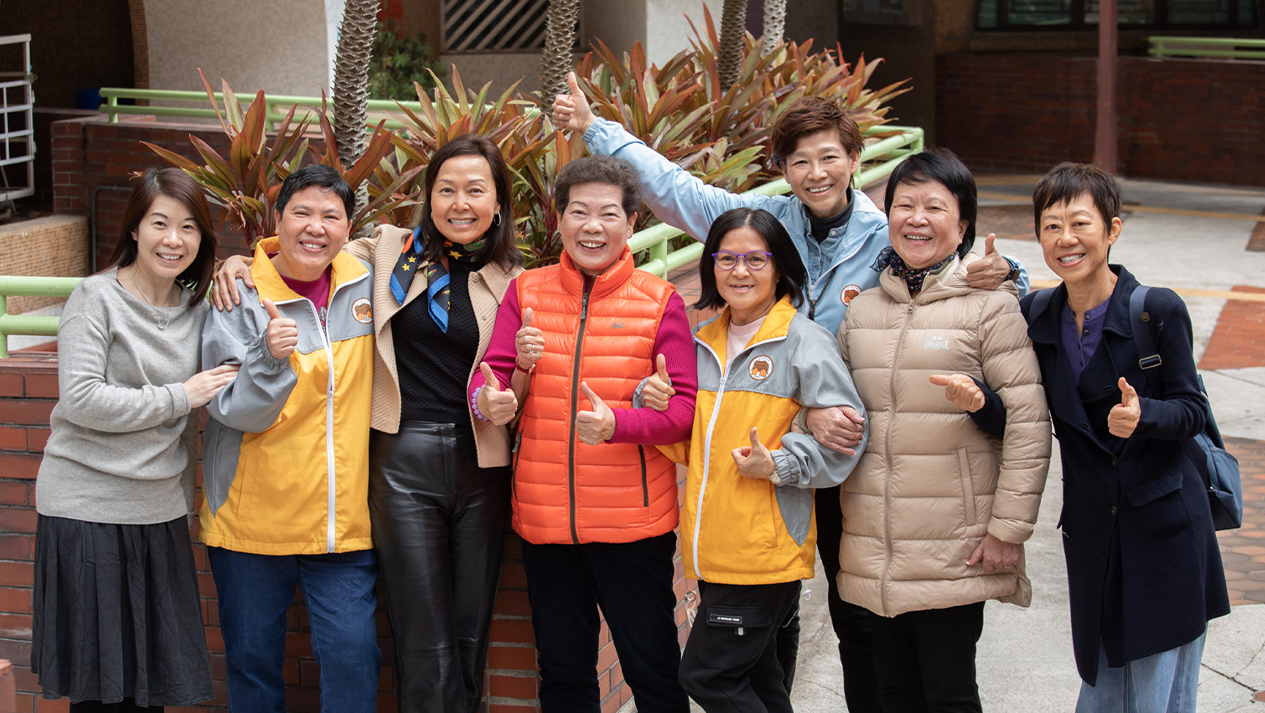05 March 2023
Imagine this… you’re 30s at the gym, lifting weights, taking a spin class, finishing the day contorted in a yoga pose. It feels unreal, doesn’t it, that at this age, while you’re at peak muscle performance, you’re starting to lose muscle mass. Muscle loss happens to everybody. And it can begin as early as age 35. But for those with sarcopenia, muscle mass is lost at a much faster rate.
Sarcopenia is the chronic and progressive muscle atrophy that occurs with ageing. It causes walking difficulties, increased risk of falls and fractures, and even inability to perform daily tasks, making it a crippling condition for seniors. The resulting loss of independence can have a devastating effect on their physical and psychological well-being, placing a significant burden on the healthcare system.
Muscle-Up Power-Up: Support Sarcopenia Programme
These concerns are the subject of a charity project led by the Zonta Club of HK East (Zonta HKE). After discussing sarcopenia’s impact on ageing with the Neighbourhood Advice- Action Council (NAAC), the project coordinator Mildred Law set up a three-way collaboration between Zonta HKE, NAAC, and Chinachem Group, and the Muscle-Up Power-Up: Support Sarcopenia Programme was born. “Sarcopenia can happen to anyone,” explains Mildred. “Sarcopenia prevention is a very compelling cause, especially in an ageing population like ours. We sought to help not just seniors who were able to get to the centres on their own to receive care, but also those who could not, by visiting them at home.” If you’ve noticed that there are more seniors walking with canes or wheelchairs in recent years, you’re not alone. According to Chin Oi Ching, Centre Supervisor, NAAC, the pandemic has caused the elderly to be hesitant to leave home, provoking negative changes to lifestyle, such as engaging in more sedentary activities, avoiding social interaction, and less exercise. “Some members of our elderly community have even stopped going to the market to shop for groceries,” Oi Ching says. “They survive on a diet of frozen food. I even know a senior who ate only chicken wings for five days straight!”
While sarcopenia is unpreventable, there are effective ways to limit and treat it, including dietary interventions, physical exercise and even getting out into the sun for vitamin D. This is why promoting awareness of sarcopenia is critical and can make a positive difference.
Photo: Siu Ling (Left) and Chun Kan
The first phase of the Muscle-Up Power-Up: Support Sarcopenia Programme was launched last September, comprising four parts over three months:
1. Assessment and Awareness
Invited seniors to undergo a physical examination which evaluated muscular strength and function and identified sarcopenia risk, while recommending interventions for those with potential sarcopenia.
2. Nutrition recommendations
Visitations were conducted to distribute muscle-strengthening food supplies and to educate seniors on the types of food that were good for them, e.g., high protein foods like chickpeas.
3. Exercise motivation
Seniors were taught simple exercises to increase muscle strength. The interactions with volunteers also helped them regain interest in the world around them. Volunteers also called them every week to remind them to exercise.
4. Progress report
At the end of the campaign, the physical assessment was conducted again so seniors could see how their exercise habits had strengthened their muscles and improved their health. “I’m glad to report that the health of our participating seniors improved measurably over the three months,” Mildred smiles. “I’d say they felt it too.”
Sarcopenia – Quick Facts
2-minute test
Use your thumb and middle finger to measure round your leg. If your fingers touch, then it means you are a high-risk patient.
Warning signs
Slow walking, difficulty in carrying objects, struggling to move, frequent falls and extreme weight loss.
Risks
More frequent falls, disability, increased risk of cardiovascular and metabolic diseases.
Diet and exercise
Eating eggs, nuts, sesame, quinoa, chickpeas, mackerel, salmon and other foods that strengthen muscles and increase bone density. Exercising for 30 minutes five times a week, especially cardio and resistance exercise, can be extremely helpful in combating sarcopenia.
